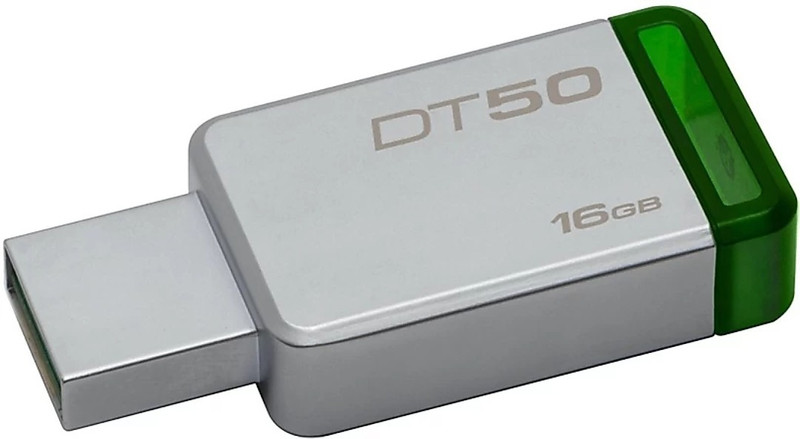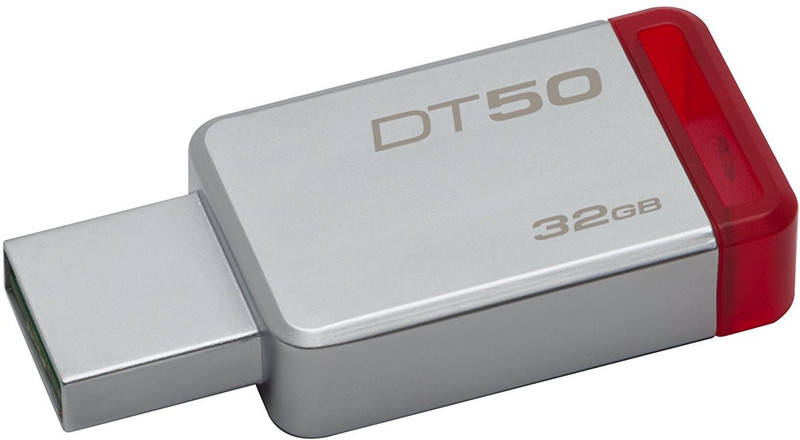Intel vs AMD Chips: Performance, Price And Battery Compared; Check The Top 8 Laptops on Amazon Too

Choosing a new laptop feels like navigating a never-ending tech maze. You start with a simple need, something reliable for work, gaming, or streaming endless episodes of your favourite series, and suddenly you're neck-deep in processor specs, clock speeds, and 'cores' that sound more like something out of a sci-fi flick. But one question always bubbles to the top and that is about chips: Intel or AMD? It's a rivalry as old as modern computing itself. Think of it as the cricket equivalent of India vs Pakistan, only with fewer sixes and a lot more silicon. For years, Intel held the spotlight, almost by default. But AMD has staged a comeback worthy of a Bollywood underdog story, complete with dramatic plot twists and surprise wins.
Let's break down this tech tangle and see which processor suits your lifestyle, budget and those late-night work-from-café sessions. It's not just about benchmarks; it's about real-world needs. Here's how this face-off between Intel and AMD plays out, and don't forget to check our list of laptops available on Amazon from HP 15, Acer Aspire Lite, Lenovo Legion 7 and more.
Performance: Who Packs a Mightier Punch?
Performance is the heart of any laptop, and here's where the rivalry truly heats up. Intel has long been known for its dependable single-core performance, which translates to quick app launches and snappy everyday use. Whether it's Excel sheets or editing photos, Intel's recent 12th and 13th Gen chips offer consistency.
AMD, on the other hand, has taken massive strides with its Ryzen series. The Ryzen 5000 and 7000 mobile processors are nothing short of beasts, especially in multitasking. With more cores at similar price points, AMD often edges ahead when running demanding tasks like video editing or compiling code.
Gaming? That's a mixed bag. Intel tends to offer slightly better frame rates thanks to faster clock speeds. But AMD's integrated Radeon graphics shine in budget-friendly laptops, reducing reliance on dedicated GPUs. That's a huge plus for casual gamers and students trying to squeeze in a little Valorant between lectures.
Verdict: If everyday snappiness is the goal, Intel remains a strong contender. But if you're juggling multiple apps or heavier workloads, AMD's extra cores bring real-world value.
Battery Life: Who Lasts Longer On The Go?
Few things are more frustrating than a laptop gasping for battery just when the Zoom call starts. Battery life matters, especially in a world where work and entertainment chase us around from desk to couch to balcony.
Intel's newer processors have improved in this department, especially the U-series chips that prioritise efficiency. Paired with smart power management in laptops like the Dell Inspiron or Lenovo Yoga, Intel machines can easily give 8–10 hours of juice, depending on usage.
AMD, however, has quietly become the hero in this arena. Ryzen 6000 and 7000 series chips are built on an efficient 6nm process, which means less heat and more battery. Devices powered by these CPUs, especially in ultrabooks, often deliver stellar battery performance without compromising on power.
Think of it this way: if you're a student jumping from lectures to group projects to Netflix in the evening, AMD might just be the trustworthy backpack companion.
Verdict: In real-world battery endurance, AMD currently holds the edge. But Intel's catching up, and both offer excellent mileage in the mid to premium range.
Price-to-Performance: Which One Offers More Bang for Your Rupee?
Let's not beat around the bush, budget is a huge factor for most buyers. And in this tug-of-war, AMD often emerges as the king of value.
Take a look at laptops under ₹60,000. Many AMD-powered models come with Ryzen 5 or even Ryzen 7 CPUs, generous RAM, and fast SSDs. Intel, at the same price range, usually sticks with Core i3 or Core i5 variants, sometimes cutting corners on other specs.
This trend continues up the ladder. AMD chips often deliver performance close to or better than their Intel counterparts, while costing less. It's like getting a top-notch thali meal for the price of a fast-food burger.
Of course, Intel's brand name still commands premium pricing in many devices, especially from bigger brands. But AMD's aggressive pricing has turned the laptop market into a buyer's playground.
Verdict: If stretching the rupee matters (and when doesn't it?), AMD wins the price-to-performance round hands down.
Also Read: Choosing A Laptop For Graphic Design? These 5 Specifications Matter The Most
Thermals And Fan Noise: Cool Operator Or Hot Mess?
Nobody likes a laptop that heats up like a tandoor. Performance is great, but not if it sounds like a jet engine or doubles up as a room heater.
Intel chips, particularly the high-performance H-series, can get warm under load. While most laptops manage this well with better cooling systems, thinner models sometimes struggle. Expect fan noise during extended Zoom calls or while streaming HD content.
AMD's newer Ryzen processors are more power-efficient, which generally leads to cooler operation. That means quieter fans and less thermal throttling (the laptop slowing down to cool off). For users sensitive to sound, or those who work in quiet environments, this makes a big difference.
It's worth noting that thermal performance also depends heavily on laptop design. A well-ventilated laptop with either processor can perform admirably, while a poorly designed one will roast marshmallows on either chip.
Verdict: AMD scores slightly better in thermals, but it's a close call. Build quality and design often tip the scales more than the chip itself.
Graphics And Gaming: Whose Integrated GPU Shines?
Not every buyer wants a bulky gaming laptop. Integrated graphics, the kind that comes built into the CPU, matter a lot for students, creatives and casual gamers.
Intel's latest Iris Xe graphics offer a solid step up from the old Intel HD days. You can now run light games like CS:GO, Minecraft or FIFA with decent frame rates. Video playback and editing are also smooth, provided you're not pushing 4K timelines.
AMD, however, has an ace up its sleeve with Radeon integrated graphics. The Radeon Vega and newer RDNA-based GPUs found in Ryzen 6000 and 7000 series outperform Intel in most scenarios. From casual gaming to light design work, AMD's iGPU offering is surprisingly capable.
Even for creative professionals dabbling in software like Blender or Lightroom, AMD's integrated options punch above their weight class.
Verdict: For better out-of-the-box graphics performance, AMD leads the race. But Intel's Iris Xe is closing the gap fast.
Compatibility And Software Optimisation: Smooth Sailing Or Hidden Hiccups?
It's one thing to have powerful hardware, and another for everything to just work. Intel benefits from decades of software and driver optimisation, making it the safer pick for niche applications, especially legacy enterprise tools.
That said, AMD's compatibility issues are largely a thing of the past. Modern Ryzen laptops handle Windows 11 like a breeze. Most software now supports AMD just as well as Intel. However, Intel still enjoys slightly wider compatibility with certain proprietary applications, often used in corporate and scientific settings.
Gamers and creative pros using software like Adobe Premiere Pro or AutoCAD might notice subtle performance variances. Some tools are optimised better for Intel, while others fly on AMD. It's always wise to check software benchmarks for your specific use case.
Verdict: Intel still wears the crown in compatibility and legacy support. But for the average user, both camps now run neck-and-neck.
Laptop Availability And Variety: Spoilt For Choice Or Slim Pickings?
Walk into any electronics store or scroll through an e-commerce site, and you'll spot an overwhelming number of Intel laptops. From entry-level Chromebooks to high-end Ultrabooks, Intel has a massive presence across brands.
AMD's rise has added welcome diversity, but choice can be limited in certain segments, especially the ultra-premium ones. That said, brands like ASUS, HP, Lenovo, and Acer are now releasing a wider range of AMD options, and they're not just cheap alternatives anymore. Some even outshine their Intel counterparts.
Still, if you're looking for specific features, like Thunderbolt ports, which are exclusive to Intel platforms, you might find your options narrowing with AMD machines.
Verdict: Intel still rules the availability roost, but AMD is catching up. Expect more balance in the coming year.
Future-Proofing: Who's Building The Better Tomorrow?
Buying a laptop isn't just about today, it's a three-to-five-year commitment. That makes future-proofing a key factor.
Intel has recently shifted to a hybrid architecture a mix of performance and efficiency cores, making its latest chips more adaptable to future software updates and power needs. Features like Thunderbolt 4 and Wi-Fi 6E also give Intel a slight lead in future-readiness.
AMD, on the other hand, has been a pioneer in adopting next-gen tech like DDR5 RAM and PCIe 4.0 in mainstream devices. Its newer platforms are also built for long-term support and sustained performance.
Both brands offer regular driver updates and platform upgrades, but Intel's sheer market presence gives it a stronger long-term ecosystem.
Verdict: Intel offers a more polished future-ready package, but AMD is just a firmware update away from levelling the field.
Products Related To This Article
1. HP 15, 13th Gen Intel Core i3-1315U
2. Acer Aspire Lite AMD Ryzen 3 5300U Premium Thin and Light Laptop
3. acer Aspire Lite, 12th Gen, Intel Core i5-12450H
4. Lenovo IdeaPad Slim 1 AMD Ryzen 5 5500U 15.6" HD Thin and Light Laptop
5. Acer Predator Helios Neo 16 Gaming Laptop Intel Core i7-14700HX Processor
6. Lenovo LOQ 2024, AMD Ryzen 7 7435HS
7. Lenovo Legion 7 Intel Core i9-14900HX 16
8. ASUS Vivobook S 14 OLED, AMD Ryzen AI 9 HX 370
So, what's the final word in this showdown? Both Intel and AMD bring unique strengths to the table. Intel delivers consistency, premium build partnerships and a vast portfolio. AMD fires back with better multitasking, longer battery life, and unbeatable value.
If you're looking for a sturdy, all-around performer with a bit of brand legacy, Intel is a safe bet. But if you're eyeing maximum power for your rupee, AMD's offerings deserve a serious look.
At the end of the day, the best laptop isn't about the logo on the chip. It's about how well that laptop fits into your life. Whether it's editing a reel, managing spreadsheets, streaming late-night cricket, or video calling the family back home, pick the machine that handles it all with a smile and maybe doesn't need a charging cable every two hours. Because that, dear reader, is the real win.
Disclaimer: The images used in this article are for illustration purpose only. They may not be an exact representation of the products, categories and brands listed in this article.





























